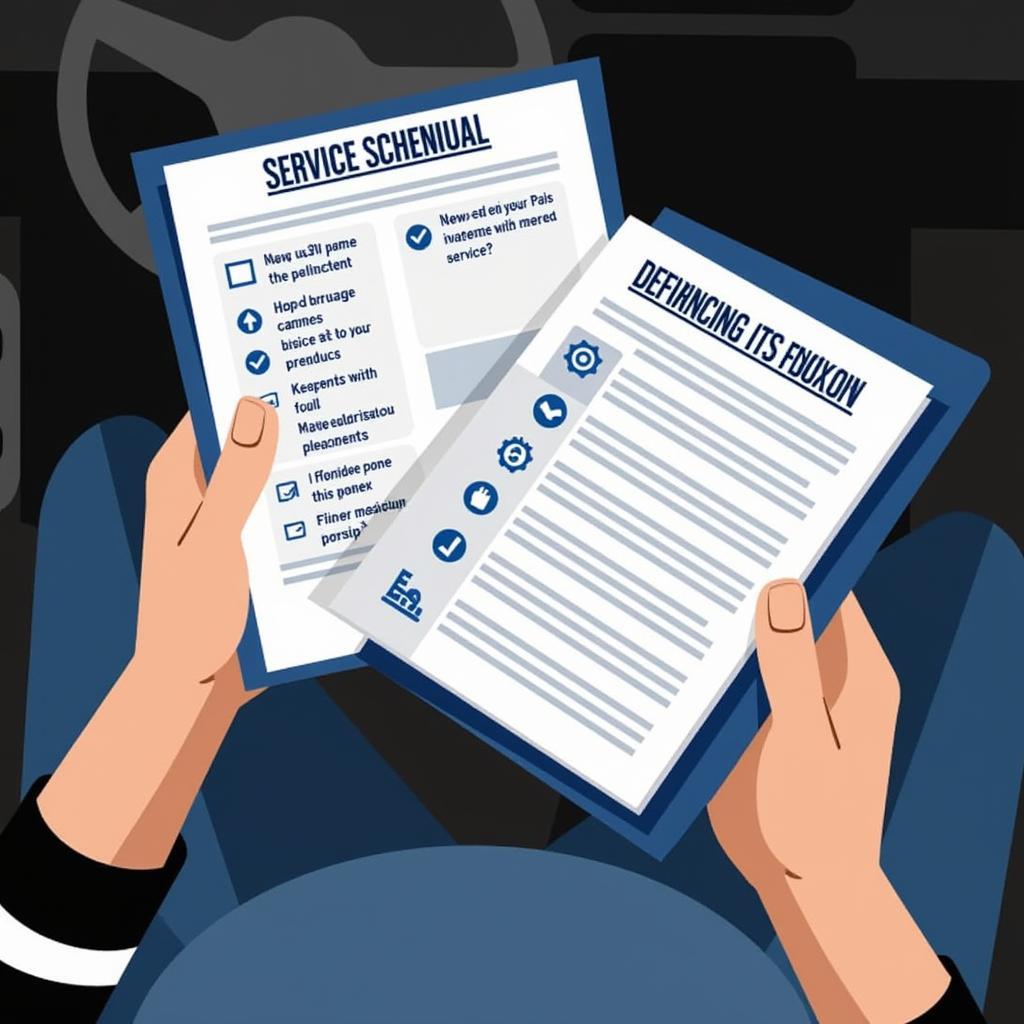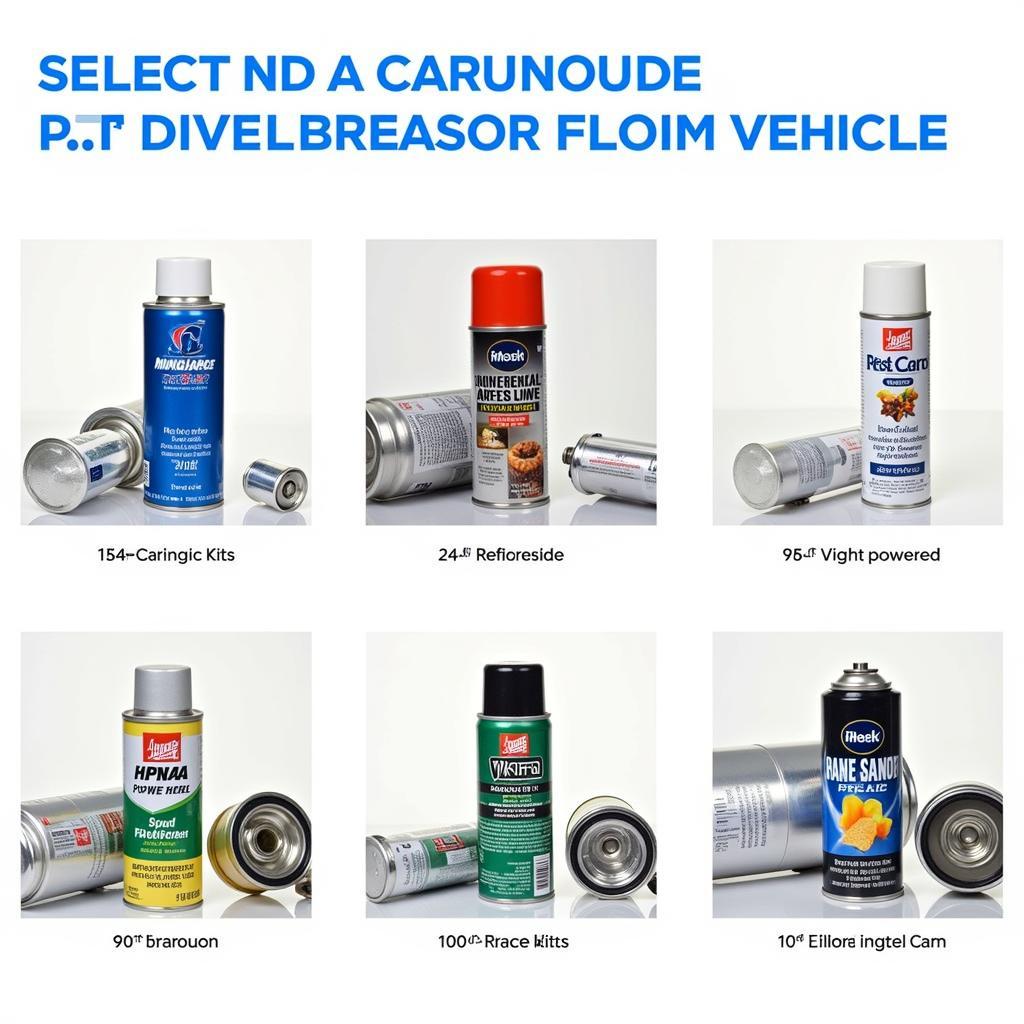When to Have Car Serviced: A Comprehensive Guide
Knowing when to have your car serviced is crucial for maintaining its performance, safety, and longevity. A well-maintained car not only provides a smoother driving experience but also saves you money in the long run by preventing costly repairs. This comprehensive guide will delve into the various factors influencing car servicing schedules and equip you with the knowledge to make informed decisions about your vehicle’s maintenance.
Do you need to have your car serviced every year? Many factors contribute to determining the right service schedule, and we’ll explore those in detail. Understanding your car’s specific needs is the first step to ensuring it stays in top condition. From manufacturer recommendations to driving habits, various factors contribute to determining the ideal service interval.
Understanding Your Car’s Service Schedule
Every car comes with a manufacturer-recommended service schedule, detailed in the owner’s manual. This schedule outlines specific maintenance tasks and their recommended intervals, typically based on mileage or time elapsed. These schedules are designed to address wear and tear on essential components and ensure optimal performance. Adhering to these recommendations is a good starting point, especially for new cars under warranty. However, individual driving conditions can influence the frequency of servicing.
 Checking car service schedule in owner's manual
Checking car service schedule in owner's manual
Factors Influencing Service Intervals
While the manufacturer’s schedule provides a general guideline, several factors can influence when your car actually needs servicing. Driving conditions, such as frequent stop-and-go traffic or driving on rough terrain, can accelerate wear and tear, necessitating more frequent service visits. Similarly, extreme weather conditions, like extreme heat or cold, can also impact various components, requiring more frequent checks.
How often do I need to have my car serviced? This depends heavily on your individual driving habits. If you primarily drive short distances, your car’s engine oil may degrade faster, requiring more frequent oil changes. Towing heavy loads or driving at high speeds also puts additional strain on the engine and other components, potentially requiring more frequent servicing.
Recognizing Warning Signs
Beyond scheduled maintenance, it’s important to be vigilant about any warning signs your car might be exhibiting. Unusual noises, vibrations, or leaks are all potential indicators of underlying issues that require immediate attention. Ignoring these signs can lead to more significant problems down the road. Regularly checking your car’s fluids, such as engine oil, coolant, and brake fluid, is also crucial. Low fluid levels can indicate leaks or other problems that need to be addressed promptly.
Is it dangerous to have car serviced with coronavirus around? While the pandemic has raised concerns, many service centers have implemented safety protocols to ensure a safe environment for both customers and staff. It’s essential to choose a reputable service center that adheres to these guidelines.
Choosing the Right Service Center
Selecting a trustworthy and qualified service center is crucial for ensuring your car receives the best possible care. Look for certified mechanics with experience working on your car’s make and model. Reading online reviews and seeking recommendations from friends and family can also help you make an informed decision. A good service center will provide transparent pricing and explain the necessary repairs in detail.
Do you legally have to get your car serviced? While regular servicing isn’t legally mandated in many places, it’s essential for maintaining your car’s safety and roadworthiness. Neglecting essential maintenance can lead to dangerous driving conditions and potentially void your car’s warranty. Where does enterprise rental cars have their fleet serviced? Large rental companies typically have dedicated maintenance facilities or contracts with reputable service centers to ensure their fleets are regularly serviced and maintained to high standards.
Conclusion
Knowing when to have your car serviced is essential for its optimal performance, safety, and longevity. While the manufacturer’s recommended schedule provides a good starting point, understanding your individual driving conditions and recognizing warning signs are crucial for determining the right service intervals. Choosing a reputable service center and being proactive about maintenance will ensure your car stays in top condition for years to come. Regular car servicing not only keeps your vehicle running smoothly but also protects your investment and ensures your safety on the road.
FAQs
- What is included in a basic car service? A basic service typically includes an oil change, filter replacement, and a general inspection of key components.
- How often should I change my car’s oil? Consult your owner’s manual for specific recommendations, but it’s generally recommended every 5,000-7,500 miles or every 6 months.
- What are the signs of a worn-out timing belt? Common signs include a ticking noise from the engine, difficulty starting, and engine misfires.
- How can I tell if my brakes need servicing? Squealing or grinding noises, a spongy brake pedal, and vibrations when braking are all indicators of potential brake problems.
- Is it necessary to rotate my tires? Tire rotation helps ensure even wear and tear, extending their lifespan and improving handling.
- What is a coolant flush? A coolant flush involves removing old coolant and replacing it with fresh coolant to prevent corrosion and overheating.
- How can I find a reliable car service center? Seek recommendations from friends and family, read online reviews, and look for certifications and experience.
Common Car Service Scenarios
- New Car: Follow the manufacturer’s recommended service schedule meticulously, especially during the warranty period.
- High Mileage Car: More frequent servicing might be necessary due to increased wear and tear on components.
- City Driving: Frequent stop-and-go traffic can necessitate more frequent oil changes and brake inspections.
- Off-Road Driving: Harsh conditions require more frequent checks and specialized maintenance.
Further Reading
For more information on car servicing, check out these helpful resources:
- Do you need to have your car serviced every year
- How often do I need to have my car serviced
Need help with car servicing? Contact us via WhatsApp: +1(641)206-8880, Email: [email protected] or visit us at 456 Oak Avenue, Miami, FL 33101, USA. Our customer support team is available 24/7 to assist you.

